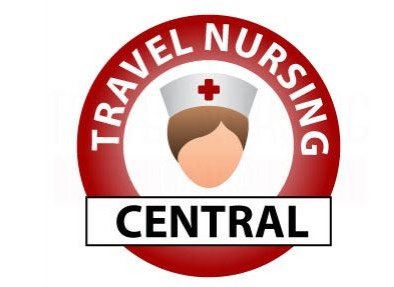
Open communication with your recruiter can make your travel nursing journey easier.
By Susan Whitman | Sr. Vice President & CFO at Freedom Healthcare Staffing
So, you’ve decided to become a traveling nurse. Congratulations! There’s a lot of planning to do as you begin this journey, but the most important might very well be developing communication with your recruiter. Yes, thinking about your first desired location, how you’re going to lightly pack for 13 weeks and what your furbaby will need for the journey are all important, but before getting overwhelmed, find comfort in knowing your recruiter is there to help you with all of this and more. To enjoy such useful support, communication with recruiters must be at an all-time high.
With these 4 tips, you’ll grow into your new travel nursing position without sweating the small stuff.
What’s Your Preferred Method of Communication?
45% of job seekers think texting is a professional way for recruiters to communicate with them. Whether you prefer texting, Facetime or even Facebook Messenger, let your recruiter know what you’re most likely to check often.
Your recruiter will need to be able to contact you frequently, and you want him or her to, especially if one of your preferred facilities has openings. Don’t let perfect assignment opportunities slip through the cracks because the email inbox is archaic to you. There will be times when you need advice or guidance through your current assignment as well. So, the easier it is for your recruiter to contact you, the better your experience will be.
It’s Okay to Say No
Honesty is extremely important when working with a traveling nurse recruiter. Don’t feel bad if they present you with an assignment you’re less than excited about. You decided to become a traveling nurse for many reasons, one of which was the ability to explore different cities across the nation. It’s acceptable to be a little picky about the places you want and don’t want to visit. After all, the traveling from facility to facility in new towns and cities is an amazing perk!
“You know how to take care of people, this is what you were born to do… You will find that traveling brings back the best part of nursing. It allows you to take care of your patients without having to get hung up on the inner workings of the unit,” said Crystal Gustafson, RN
Don’t get stuck in an assignment because you didn’t want to turn down the recruiter. It’s best to tell them yes or no immediately so they don’t end up doing extra work when they could be finding jobs you’d love.
Get Organized
If you’re brand new to the traveling industry, there are many things you need to set straight before accepting your first assignment. Don’t miss a dream opportunity because you didn’t prepare everything ahead of time. Run through this list before saying, Y-E-S:
- Get up-to-date on all your vaccinations
- Apply for your new state license
- Get your car checked for updates and necessary repairs
- Give a house key to a trusted family member or friend
- Stop your mail for the length of your assignment
- Call your bank and notify them you’ll be leaving for X amount of weeks
- Ask someone to take care of your lawn if you have one that needs tending to
- Set up automatic bill payments
With all the essential duties out of the way, you can focus on working with your recruiter to find a great opportunity.
Be True to You
Know what you want in your assignments before letting your recruiter send you any ol’ open positions. Do you have specific compensation preferences? A short list of states you hold licenses in? Certain times of the year you’re available or unavailable to travel? Are you traveling with a pet or partner? Your recruiter needs these specific guidelines so they can focus their research on the positions that suit your lifestyle.
Create an open and easy relationship with your recruiter. He or she will be your partner in finding the opportunities you really want. The better you understand one another, the greater your chances of forming a successful traveling nurse career. And, with their help, you’ll never be alone in your travels.
What are your biggest concerns about taking your job nation-wide?
Susan is the Senior Vice President & CFO of Freedom Healthcare Staffing, a staffing agency for traveling nurses across the U.S. based in Aurora, Colorado. Susan has over 20 years of experience in the hospital & staffing industries beginning in 2001 as the Vice President of Fastaff Travel Nursing. The Freedom Healthcare team and Susan take pride in helping their travelers find the healthcare jobs of their dreams, providing support, outstanding benefits, and unbeatable compensation. Learn more about Freedom Healthcare: http://www.freedomhcs.com/.










